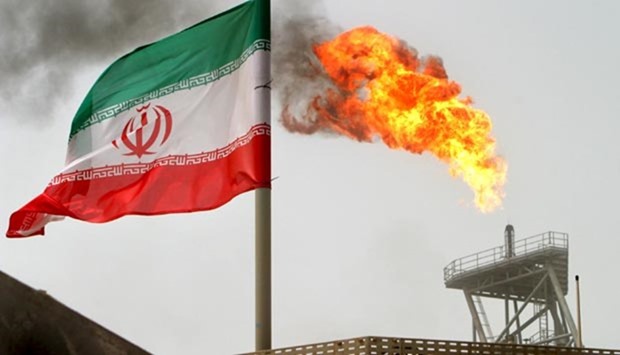Oil prices recovered further on Tuesday as a strike by Kuwaiti petroleum workers entered its third day, offsetting downward pressure from a failure by producers to freeze output.
Prices had plunged early Monday, a day after the long-awaited meeting of major producers in Doha collapsed, fanning worries about a persistent global oversupply.
However, the losses were pared through the day on news that thousands of workers in the Kuwaiti oil sector had started industrial action over planned wage cuts.
Around 1600 GMT on Tuesday, US benchmark West Texas Intermediate for delivery in May was up $1.35 at $41.13 a barrel.
European benchmark Brent North Sea crude for June delivery won $1.17 to $44.08 compared with Monday's close.
Kuwait - the fourth-largest producer in the Opec exporters' cartel - revealed on Tuesday that it had managed to restore some affected production at its state oil firm.
Kuwait Petroleum Corp's spokesman Sheikh Talal Khaled al-Sabah said output was now running at 1.5mn barrels per day - 50% of normal output - against 1.1mn bpd on Sunday.
Analysts said the strike may have only a temporary effect on the market.
"The strike is a potential positive. But at this stage, it appears that this (Kuwait strike) may be resolved pretty quickly and so the overall interruption would not be large," CMC Markets analyst Michael McCartney told AFP.
Oil prices had risen last week on hopes that major producers - including the biggest two, Russia and Saudi Arabia - would agree to freeze output at January levels.
But Saudi Arabia's decision not to take part unless bitter rival Iran also joined torpedoed any hopes of a deal. Iran had said it would not agree to any caps having just returned to the export market after years of Western nuclear-linked sanctions.
Analysts said the focus will now shift to a key Opec meeting in June.
Meanwhile, Iran will not accept an oil output freeze because it would effectively mean a prolonging of sanctions, its oil minister declared on Tuesday, insisting rival producers caused a supply-led price slide.
Tehran has been pumping more crude since sanctions were lifted on January 16 under its nuclear deal with major powers, aiming to regain market share lost in recent years but adding to a global glut.
Opec cartel member Iran did not send a representative to Doha and Oil Minister Bijan Zanganeh's comments underlined why Tehran sees no justification for changing its stance.

